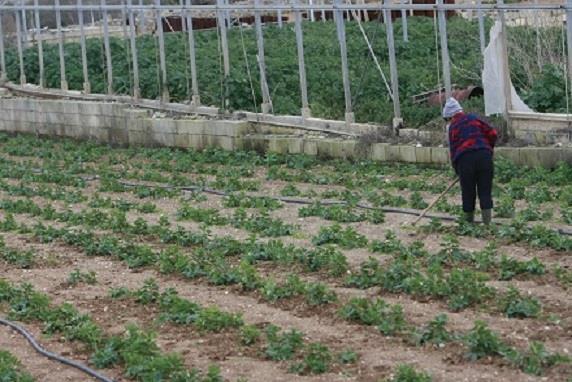Concerned local farmers are pleading with the authorities to set up a local laboratory to carry out the necessary testing on local produce to help clear the air on the use of pesticides in Malta.
Farmers and local produce sellers have been through a particularly rough patch in recent months as reports in the media have cast doubt on the pesticides being used by local field workers. The sale of local fruit and vegetable went down immensely as the public feared that the pesticides used in fruit and vegetable production was tainting the authenticity of local produce. Genuinely concerned farmers have approached the authorities in an attempt to clear the bad name of local fruit and vegetables.
Professor Evaraldo Attard is an expert at the National Hub for Ethnobotanics. The Hub falls under the President’s Foundation for the Wellbeing of Society. In the last months, it has received pleas from the representatives of local farmers to help local produce clear its name by having a local lab set up to regulate and test for pesticides. Their pleas did not fall on deaf ears and the Hub has held multiple meeting with farmers to discuss major issues.
“First of all, we have to set the record straight about pesticides. If they are used correctly, pesticides are necessary for fruit and vegetable production. Unfortunately, for the uninformed, pesticides have a bad connotation. It should not be the case,” Prof. Attard explained.
The setting up of a local testing lab was the main recommendation presented to the government and to the Parliamentary Secretary for Farming Clint Camilleri in particular. Having this lab set up would solve a major issue for both farmers and consumers alike.
“They are proposing this in good faith. They want their produce to be adequate for the local consumers and for their sales to go back up to what they were.”

Attard explained that as it stands, local farmers have to wait between six to eight months to get the results for pesticides testing. The samples have to be sent abroad, normally to Sicily or Germany. A local testing lab would make testing quicker and more efficient. “It would also be ideal to test what comes from abroad,” Attard added.
The meetings between the representatives of farmers and the Hub have been going on for months. The meetings were led by Prof Attard and were on some occasions attended by President Marie-Louise Coleiro Preca. The last couple of meetings were also attended by the Parliamentary Secretary for Farming Clint Camilleri.
“They contacted us, concerned, because they want to formalise their request. Their call for this lab is a sign of good will. Nowadays farmers are very careful. They know what impact their actions will have on the public. Obviously, like anything else under the sun, there will always be those who abuse.”
The last meeting was held on Monday 13 November and a report was drafted listing, among other things, a number of recommendations.
“The truth is we need to safeguard local produce, because we cannot depend on the importation of fruit and vegetable. We need to value our local products. The President’s Foundation for the Wellbeing of Society is about safeguarding what is ours as Maltese.”

Besides the setting up of a local testing lab, the farmers’ representatives also listed another 10 recommendations. These include the proposal to have local and international products labelled and traceable and to increase the investment in Waste Management programmes so that nutrients which can be used for farming are not wasted.
Farmers are also asking for proper and detailed labelling system. As regards the farmers’ market, local fruit and vegetable producers have proposed setting up an independent official to manage the market. “The farmer market can only sell products which originate from Malta and include fruit, vegetables and fish. The market is also in need of a tent as protection from the sun and rain, and better access to public transport.
“Local farmers already have to face very harsh challenges. Many feel that they are not helped and are not willing to encourage their children to take up this profession because they know it is very difficult to maintain. Maybe, the authorities can help with this list of requests and make their lives slightly easier.”
Recent figures from the National Office of Statistics have shown that the volume of fresh fruit and vegetables sold through official markets amounted to 17.6 million kilogrammes, yielding €10.3 million. This represented a drop of 10.9 per cent in weight and a 4.9 per cent growth in wholesale value over the corresponding period in 2015.